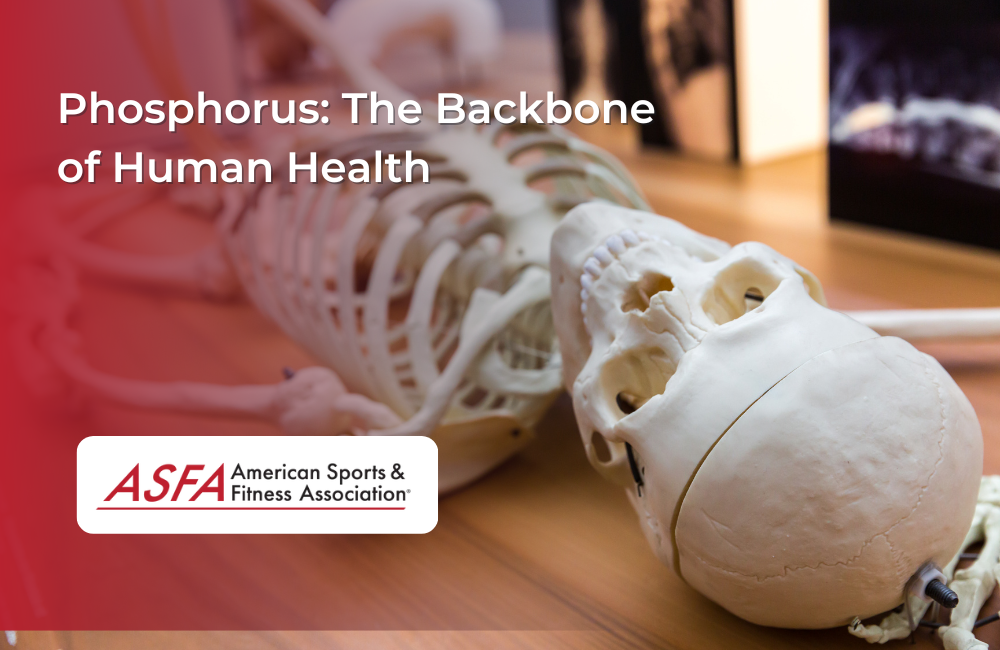
Phosphorus: The Backbone of Human Health
Phosphorus is an essential mineral for human health, and it's especially important for maintaining healthy bones and teeth. It's also critical for the normal functioning of all cells in the body, particularly those involved in energy metabolism. In addition to its role in supporting proper cell function and development, phosphorus also plays a vital role in regulating blood calcium levels (and thus blood pressure). If you're not getting enough dietary phosphorous from your diet alone (which can be difficult due to widespread phosphate depletion), then supplementation may be necessary.
Phosphorus is an essential mineral for human health.
Phosphorus is an essential mineral for human health. It is the second most abundant mineral in the body, after calcium. Phosphorus helps maintain normal cell function and plays a crucial role in maintaining healthy teeth and bones. It also plays an important role in maintaining normal cardiovascular function by helping to regulate blood pressure.
Phosphorus occurs naturally in many foods, including milk, eggs (the yolk contains more than half of its phosphorus), fish (particularly cod), meat (e.g., beef), and nuts (e.g., almonds). However it can be difficult for people who eat little or no dairy products or meat/fish/eggs - those with low calcium intake or low levels of body fat - to get enough phosphorus from a diet alone
It is the second most abundant mineral in the body, after calcium.
Phosphorus is the second most abundant mineral in the body, after calcium. It's found in every cell of your body and it plays a key role in many important functions. Phosphorus helps maintain acid-base balance, helps to build and maintain strong bones, keeps your muscles functioning properly, produces energy for cells to function and grow, and helps keep your nerves working correctly (which is why you feel tingly or numb when they're damaged), keeps blood pressure normal under stress conditions like exercise or illness--and much more! So if you want to stay healthy from head to toe then eat lots of good quality sources of phosphorus such as whole grains (oatmeal), nuts & seeds (almonds), seafood like oysters & clams which are excellent sources along with leafy greens like kale & spinach!
Phosphorus helps maintain normal cell function and helps to form healthy teeth and bones.
Phosphorus is an essential mineral that helps maintain normal cell function and helps to form healthy teeth and bones. Phosphorus also plays a role in energy metabolism, nerve signaling, blood glucose levels, red blood cell formation, and regulating blood pH levels.
Phosphorus is involved in many processes within your body including cell growth and repair; DNA synthesis; RNA synthesis; bone health (especially during the growing years); tooth enamel formation; protein synthesis; maintenance of fluid balance (i.e., water retention/loss); muscle contraction/relaxation (i.e., muscle tone)
It also plays a crucial role in maintaining normal cardiovascular function by regulating calcium levels in the blood.
Phosphorus is an essential mineral that plays a crucial role in maintaining normal cardiovascular function by regulating calcium levels in the blood. Phosphorus deficiency can lead to high blood pressure, which is one of the leading causes of death worldwide. When you don't get enough phosphorus, your body will pull it from bones and teeth, resulting in weak bones and teeth that break easily.
Phosphorus helps regulate calcium levels in the blood by removing excess amounts of calcium from soft tissues like muscle cells or kidney cells where they might cause injury if left unchecked by this mineral; thus making sure that there's just enough on hand without having too much lying around waiting for something bad to happen!
Phosphorus deficiency can contribute to bone pain, muscle weakness, and fatigue.
Phosphorus is an essential mineral that plays a key role in bone formation, cell growth, nerve function, and other processes. Phosphorus deficiency can contribute to bone pain, muscle weakness, fatigue, and peripheral neuropathy (nerve damage).
To treat phosphorus deficiency:
- Eat foods rich in phosphorus such as dairy products (cottage cheese), seafood (tuna), and leafy greens ( spinach).
- Take a vitamin or mineral supplement containing at least 500 mg of elemental phosphorus per daily serving.
Symptoms of a deficiency include bone pain, muscle weakness, fatigue, and numbness or tingling in the extremities (peripheral neuropathy).
Symptoms of a deficiency include bone pain, muscle weakness, fatigue, and numbness or tingling in the extremities (peripheral neuropathy).
If you suspect that you are not getting enough phosphorus through your diet, speak with a doctor. Your doctor can perform tests to determine whether or not a deficiency exists and make recommendations for increasing dietary intake if necessary.
Phosphorus is important for health, but it can be difficult to get enough from food alone
Phosphorus is an essential mineral that is not as abundant in food as calcium. Phosphorus deficiency is rare in the United States, but it can occur if you have chronic kidney disease or if you're on a low-protein diet. If you don't get enough phosphorus from food alone, your doctor may recommend taking a supplement to ensure that your body has enough of this important nutrient.
Phosphorus supplements are readily available at most pharmacies and grocery stores; they come in several forms including tablets (which dissolve under your tongue), capsules (you swallow), and liquids (you drink).
Conclusion
In conclusion, phosphorus is an essential mineral for human health and it plays a crucial role in maintaining normal cardiovascular function by regulating calcium levels in the blood.




